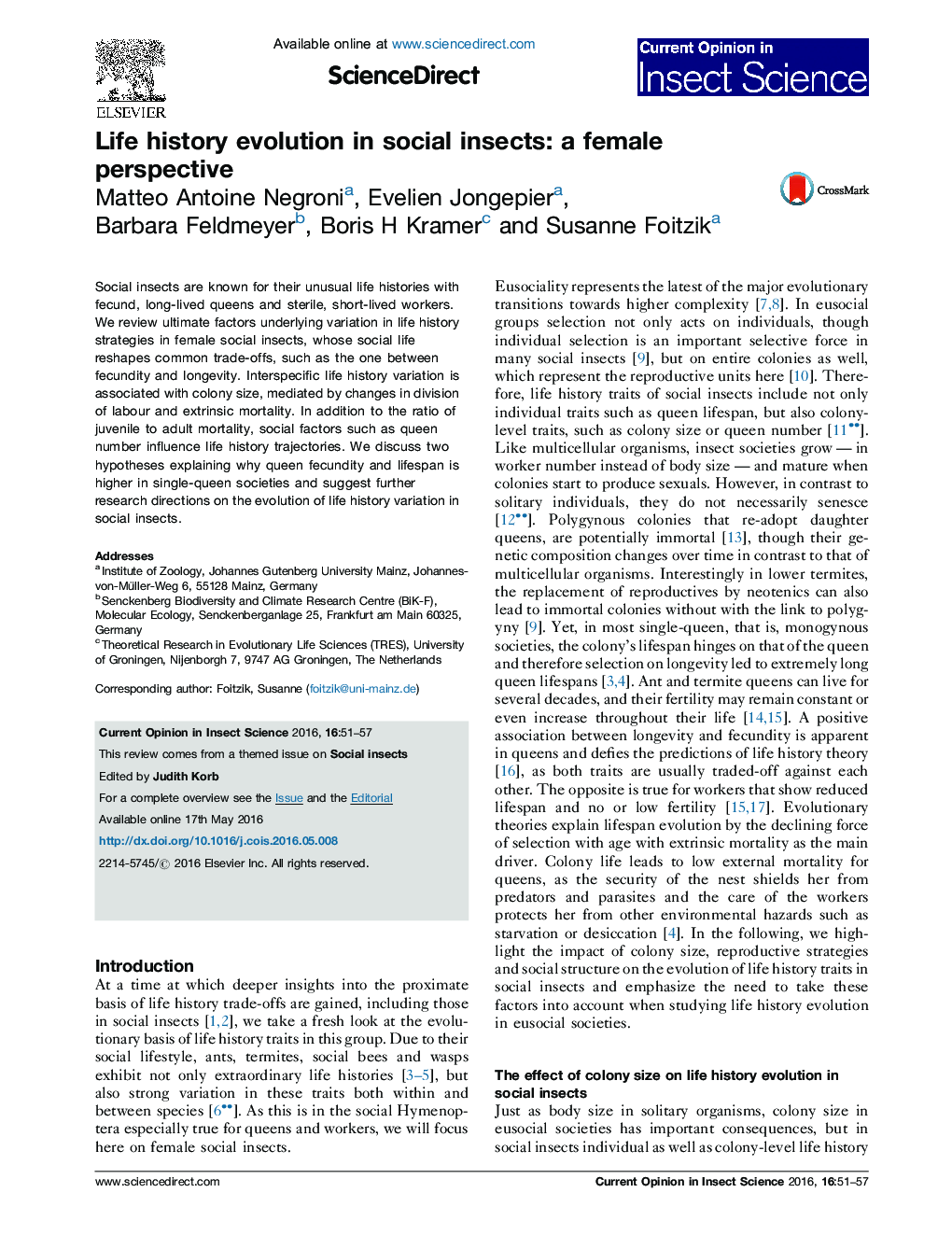| Article ID | Journal | Published Year | Pages | File Type |
|---|---|---|---|---|
| 6374010 | Current Opinion in Insect Science | 2016 | 7 Pages |
â¢We revisit ultimate drivers of the large life history variation in female social insects.â¢Sociality influences life history evolution and reshapes common trade-offs.â¢Unique to social insects is selection on colony-level traits as colony size or queen number.â¢With increasing colony size, queen and worker life histories diverge.â¢We discuss ultimate hypotheses on the effect of queen number on life history evolution.
Social insects are known for their unusual life histories with fecund, long-lived queens and sterile, short-lived workers. We review ultimate factors underlying variation in life history strategies in female social insects, whose social life reshapes common trade-offs, such as the one between fecundity and longevity. Interspecific life history variation is associated with colony size, mediated by changes in division of labour and extrinsic mortality. In addition to the ratio of juvenile to adult mortality, social factors such as queen number influence life history trajectories. We discuss two hypotheses explaining why queen fecundity and lifespan is higher in single-queen societies and suggest further research directions on the evolution of life history variation in social insects.
